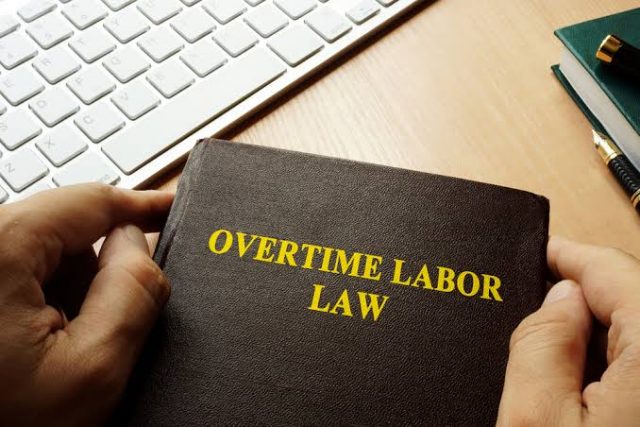Which of my employees are entitled to overtime protection? No doubt this is a critical question every employer must answer. This is because failure to extend overtime pay to these eligible employees could result in lawsuits, fines, and possibly criminal penalties.
Today, no state or federal law caps the number of hours a person can work (except in cases of minors). However, every employer must know that working past 40 hours in a workweek must trigger overtime pay for certain employees.
Therefore, this article details what businesses need to know about the federal overtime rules and the consequences of non-compliance.
What does federal overtime pay mean?

Under the Fair Labor Standards Act (FLSA), the federal overtime pay comes into play when employees who are not “exempt” (we’ll talk about it in this article) work more than 40 hours in a workweek. These employees must be paid 1.5 times their regular rate per hour once they pass this 40 hours threshold. For example, if a non-exempt employee’s hourly rate is $20 and he/she works 42 hours, then an extra two hours must be paid at a rate of $30.
Which employees are eligible for the overtime pay rule?
This rule applies only to employees that are “non-exempt”. Oftentimes, the exemption is due to the type of work they do, how they receive payment (hourly or monthly salary), and how much they receive as payment.
Classifications of exempt employees
According to the federal overtime rules, when employees fall into one of the below classifications, it isn’t mandatory for employers to extend overtime pay to them.
- Executive: They regularly direct the work of at least two full-time employees and maintains the right to fire or hire other employees. The primary duties of executive employees include managing the company, a subdivision of the company, or a recognized department. Also, they make a salary of no less than $684 per week.
- Administrative: Administrative employee’s primary duties involve work related to the management of general business operations. They receive payment on a salary or fee basis at a rate of $684 per week or more.
- Professional: Most professional employees receive payment on a salary or fee basis at a rate of $684 per week or more. They are primarily focused on the performance of work requiring intellect in character, advanced knowledge, and the consistent exercise of discretion and judgment.
- Computer-related: These employees receive payment on a salary or fee basis at a rate no less than $684 per week. However, at an hourly rate, they receive no less than $27.63 per hour. Their primary duties include the design and development of computer systems or programs and the application of system analysis techniques.
- Outside sales: These are enterprise’s salespersons whose primary duties are making sales, or obtaining orders or contracts for services. Additionally, they regularly work outside the employer’s primary workplace.
You might be wondering… why do we keep using $684 per week as the benchmark for exempt employees?
Well, according to the U.S. Department of Labor (DOL), the maximum salary at which all employees must receive overtime is $684 per week. Hence, the above classifications of employees are exempted from overtime because they’re called highly compensated employees (HCEs).
Consequences for violating overtime laws

There are two main consequences for businesses that are violating the overtime laws. The first is potential employee lawsuits. Consequently, these lawsuits can quickly become expensive and also generate negative publicity for your business.
Furthermore, the government could also act against non-compliant companies. The Department of Labor’s wage and hours division can levy heavy fines for willful FLSA violations. If done repeatedly, it could lead to imprisonment. Therefore, you must comply with the overtime rules to avoid quickly landing your business in hot water.
Final Thoughts
As a business owner, it pays to comply with the federal overtime rules. Your business won’t face lawsuits and fines, and you’ll no doubt be making your employees happy. Never forget that a good and happy working environment lays the foundation for more business success.





